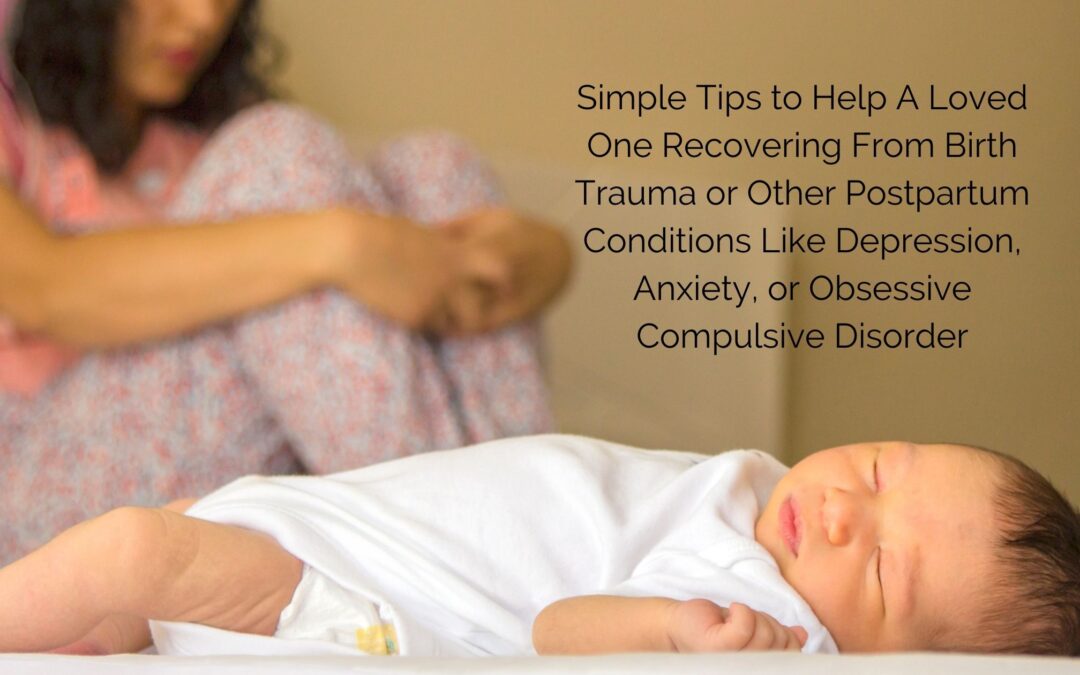Finding out your loved one is struggling with postpartum issues can lead to feelings of wanting to help, but being unsure of the best ways. Here are some suggestions:

Focus on empathizing, not fixing. The new parent needs someone to really hear them, not fix the situation. Helpful phrases include: “I know it may not feel like it right now, but you are a great parent”, “I know you will feel better because you are getting the help you deserve” and “You are doing a great job with ______ (be specific)“. Remind them that they are not the only parent to go through this.
Encourage them to get help. The three recommended forms of professional help for postpartum issues include individual therapy, group therapy, and talking to a doctor or midwife about potential medications. New parents may find other forms of support such as acupuncture helpful as well.

Take over household chores so that they can just be with the baby. We know that skin-to-skin time is especially helpful for recovery, so making sure there is plenty of time for that bonding is essential. Instead of asking what they need help with, just jump on in. Doing a load of laundry, preparing meals, and running errands are all helpful. Take care of any pets. Play with other children if there are any in the household. Essentially do anything around the home that needs taking care of so that they can just focus on themselves and their baby.
Hire a postpartum doula. Postpartum doulas are especially helpful for those struggling with postpartum issues and some are also available to help overnight. Check out this website to learn everything a postpartum doula can assist with: http://www.dona.org/mothers/faqs_postpartum.php

Take care of yourself! It is also possible for non-birth parents to struggle with postpartum issues, especially if they get too run down. You will be unable to support your partner if your tank is running empty. Although you are taking on various responsibilities, ensure you are also getting food, rest, and support when you need it as well.
Postpartum challenges can be overcome with the right mixture of support, attentiveness, and treatment when needed. Feel free to check our page out www.catalystcenterllc.com for more info about how we can support new and forming families!



